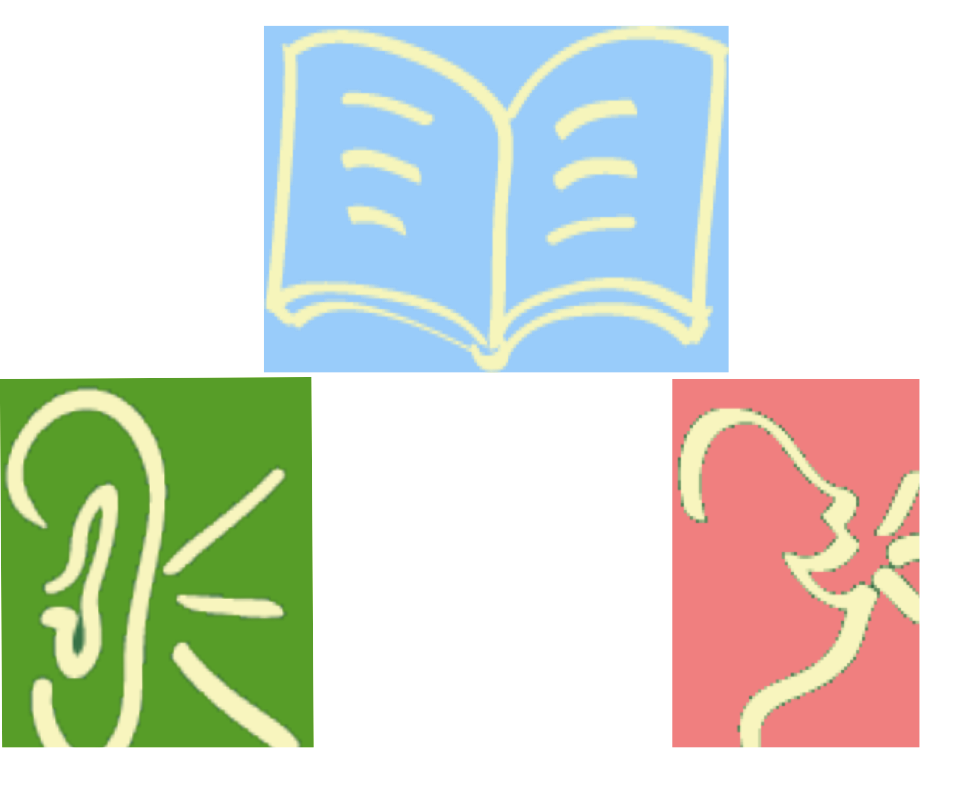Foreign Language Learning for Adults - Reading, Listening, Writing, and Speaking
 Young children generally learn a language by listening, repeating, and speaking.
Young children generally learn a language by listening, repeating, and speaking.
By contrast, adults who use self-teaching language courses for learning a second (or third) language, also are asked to practice their reading skills by most programs. (There are exceptions, of course, such as Pimsleur's audio courses.)
For English speakers acquiring a Germanic or Romance language, the similarities of these languages to their mother tongue is certainly a big bonus.
Reading
Frequent reading can obviously increase your foreign vocabulary tremendously. Once an English speaker has grasped some of the basics of a new language, reading may be the easiest language skill to acquire. This is especially true if reading is done on the web.
Online dictionaries - or even better - Google's Chrome Extension, or programs like LingQ, and other translation tools, can quickly help you find the meaning of unknown words or expressions.
Just compare this to the cumbersome way of the past, when you had to consult a hardcopy dictionary every time to look up words.
Listening comprehension
Listening to a foreign speaker when you're just starting to learn a language does feel overwhelming: You can't even distinguish individual words, nor can you understand any meaning.
That is why most online language courses combine reading with listening. Associating a written word with its pronunciation is an important step towards remembering its meaning.
Here, repetition is key. After listening to the same audio again and again, you gradually start to distinguish where words and phrases begin and where they end.
That is why GamesforLanguage and other programs recommend listening to the audio of each lesson or level as often as possible.
Writing
Writing skills in a foreign language may often even lag behind speaking. You may never write like a Thomas Mann in German, express yourself like a Flaubert in French, a Cervantes in Spanish, or an Eco in Italian.
However, writing out words and phrases in a foreign language is a good way to practice them as it also helps memorization.
Speaking
For many English speaking adults, speaking a foreign language fluently seems to be the hardest skill to master. You can only master foreign sounds by speaking them out loud. But at the same time, you have to deal with the inhibitions and the angst adults feel in the face of potential embarrassment.
Online programs that have learners record their voice and compare it to that of a native speaker are probably just as effective as those that use voice recognition. Beginners can easily be frustrated and discouraged, so you should use what works best for you. (see also our post on Mouth Mechanics)
For most adult language learners speaking a foreign language fluently will be the ultimate goal, but fluency can only be achieved with frequent practice.
Learning words and expanding your vocabulary is important and essential, but so is listening, reading, and practicing aloud. All four language skills in fact support and enhance each other, but unless you start speaking, you won't become fluent!
Bio: Peter Rettig is the co-founder of Gamesforlanguage.com. He is a lifelong language learner, growing up in Austria, Germany, and Switzerland. You can follow him on Facebook, Twitter and Instagram, and leave any comments with contact or below.
